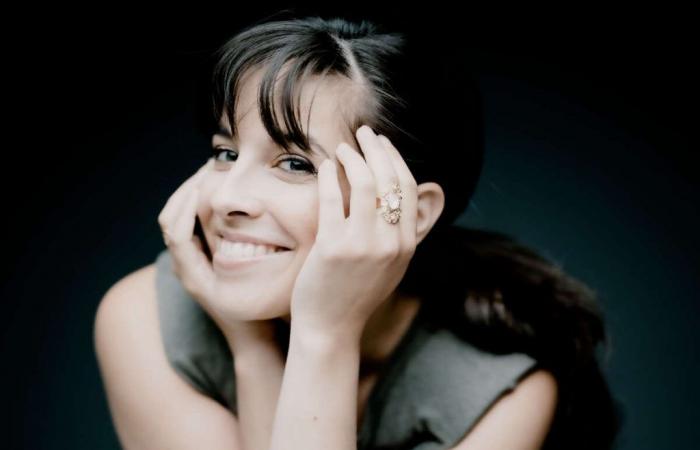Her light soprano voice, her limpid diction and her rigor have made her an exceptional interpreter of Offenbach, but also of French romanticism. The lyrical world mourns his sudden and early death.

With Jodie Devos, the comic opera repertoire loses one of its most ardent and rigorous activists. Photo Marco Borggreve
By Sophie Bourdais
Published on June 17, 2024 at 3:47 p.m.
Llightning falling in a cloudless sky. Arousing astonishment, revolt and sorrow. Sunday June 16, we learned through a saddened press release from Intermezzo, the agency which represented her, that the Belgian soprano Jodie Devos had just passed away at the age of 35, lost to breast cancer of which we learned existence at the same time as the fatal outcome. Its replacement for the production of The Olympiad, by Antonio Vivaldi, announced in mid-May, should have alerted us: the Théâtre des Champs-Élysées said it “suffering”, however, several weeks before the premiere (scheduled for this Thursday, June 20), it could not be a cold or a sore throat. But Jodie Devos was so young, so joyful, so alive! We wanted to believe this endearing artist, bursting with good humor and vocal health, to be immortal, who had been lighting up all the stages on which she performed for around ten years.
Born on October 10, 1988 in Libramont, in Walloon Belgium, trained in Namur and London, and rewarded in 2014 with a second prize and a public prize at the Queen-Elisabeth Competition, Jodie Devos immediately joined the Academy of the Opéra Comique, in Paris. Since then, she sang a lot in France, to our greatest joy. She had one of the most beautiful light soprano voices that can be heard on opera stages, a consummate art of vocalization, limpid diction and a personality as exquisite as her instrument.
Cast in her early days in small roles, she defended them with so much enthusiasm that they made as much impact, at the end of the premieres, as the main characters. How to resist his sweet Alice in THE Count Ory, by Rossini, marvel of ingenuity, his page Arthur in The Bloody Nun, by Gounod, a little miracle of grace and freshness, his tender Rosa in The silver stamp, of Saint-Saëns? French romanticism fit him like a glove, and had in fact become one of his trademarks. She did not make it an exclusive, her repertoire ranging from Ramiste baroque (Zoroaster, Les Indes galantes) to the contemporary, as evidenced by the world creation at the Brussels Mint ofWe’re purging baby!, by her compatriot Philippe Boesmans, where she was brilliant as a mother obsessed with her offspring’s stools. She sang just as willingly Mozart, mutinous Suzanne in The Marriage of Figaro or Queen of the shady night in The Magic Flute, then sending its sharp treble like so many arrows.
It is, however, the comic opera repertoire, and in particular that of Jacques Offenbach, which loses one of its most ardent and rigorous activists. In addition to a magnificent record, Offenbach Colorature (Alpha Classics), we will not forget her insolent and funny Gabrielle in Parisian life, at the Théâtre des Champs-Élysées, nor his Olympia doll as pyrotechnic as it is mischievous in Hoffmann’s Tales, at the Opéra Bastille.
At ease on all stages, large or small, Jodie Devos was also in darker registers, whether that of the melancholy Princess Elsbeth in Fantasy (Offenbach always), from Ophélie in the Hamlet by Ambroise Thomas, or the title role of the Lakme by Léo Delibes; she then exchanged mischief for peaks of expressiveness. In November 2023, she squeezed our hearts, Salle Favart, with the lament of Elsbeth, forced into a loveless marriage: “Ah! Who can read his heart? / Who is the husband that unfortunately I am waiting for? / To begin you have to laugh about it, / There is always time to cry! » Today, we cry for real.
LISTEN TO JODIE DEVOS
Once upon a time…, with mezzo-soprano Caroline Meng and the Giardini Quartet, Alpha Classics.
Offenbach Colorature, with the Münchner Rundfunkorchester conducted by Laurent Campellone, Alpha Classics.
And Love Said…, with pianist Nicolas Krüger, Alpha Classics.
Lost jewelrywith the Brussels Philharmonic conducted by Pierre Bleuse, Alpha Classics.






